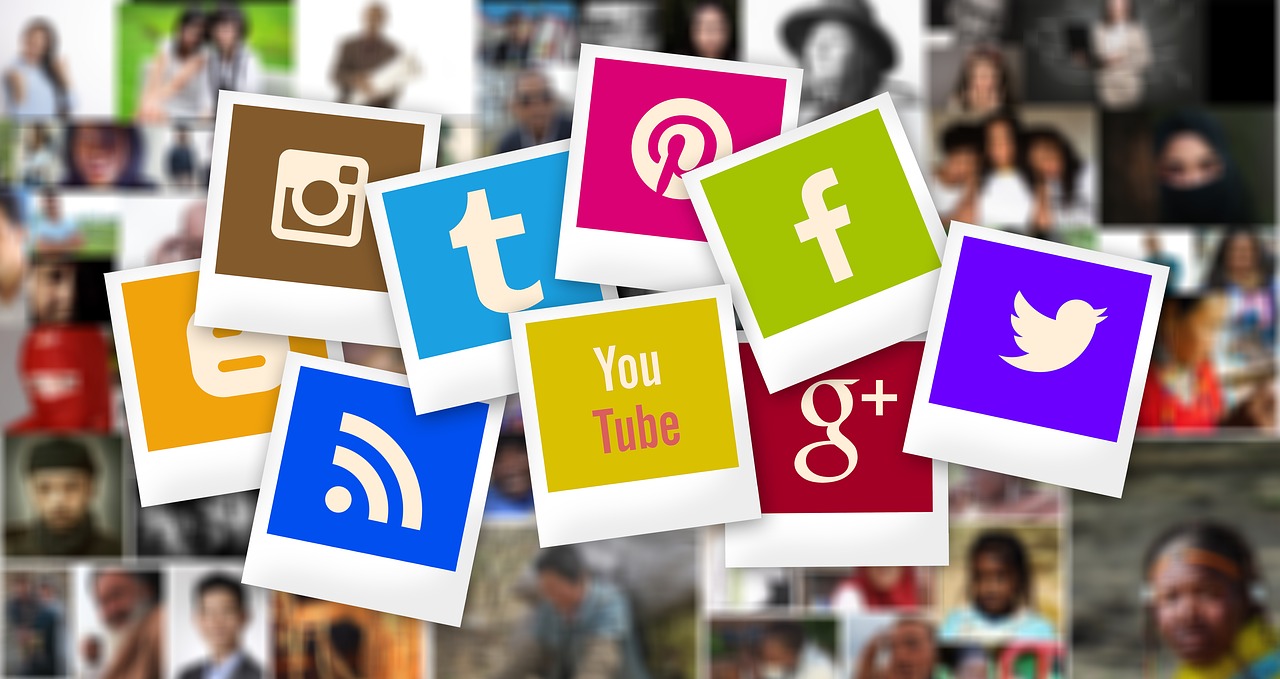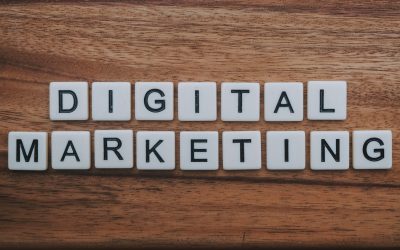A lot of people look at me funny when I bring up the term “personal branding.” Many have heard of “branding” in terms of their business, but never consider the benefits of personal branding. Branding has long been a tool used by companies to position themselves in their industries or with their customers. I happen to personally think it is a very important marketing tool that can be used by individuals, especially those that represent their own or an employer’s company in sales and marketing, or that are representing a non-profit organization to bring in funding.
Personal branding is marketing yourself, your career, your business or the organization you represent in the best possible light. Personal branding may not be as important for some, but those who are in sales or own their own business, will definitely benefit by controlling their personal brand.
Entrepreneurs are notorious for ignoring their personal branding. They assume others already understand their personal brand or think “my work speaks for itself.” Many are so busy they just feel like they don’t have time to build and control their personal brand. But, if someone is going to buy from or hire you, they often want to know what you stand for and what value you will bring to them. Working on your personal brand will bring long-term benefits to you and your organization.
You should also heavily control your personal brand if you are in the job market. Employers are more often now, than ever before, to pre-screen potential new hires via social media profiles. I have even heard reports that some employers that want, not just public access, but access to all of your Facebook posts, before hiring you. They want to see what you are about and how you live your life. They want to make sure you are a good fit for their company and team. Hey, it’s their business, so I guess they are free to ask for that information, and you are free to either give it to them or move along to another company that doesn’t want that kind of access to your personal life.
Think about how networking, job interviews, or an initial business meeting was done 20 years ago. You would get dressed up for your first meeting, make sure you were shaven, well-groomed, and presenting yourself in the best possible light. But now, with the proliferation of the internet, people’s initial impressions of you may come from a quick peek at your social media profiles. Whether they may be LinkedIn, Facebook, Google +, Twitter or some other social media outlet, trust me, people are looking!
Personal branding, or self-positioning, was first introduced in the book Think and Grow Rich, by Napoleon Hill, in 1937. It became one of the best-selling books of all time. By the time of Hill’s death in 1970, it had sold 20 million copies. So, personal branding is not a new concept. But, because of technology and the global reach of information, how one does it has changed quite a bit.
Thanks to the internet, personal branding has reached a new level. Although it is a virtual world, it has an impact in the real world. People who want to portray themselves in a certain way need to work to maintain a particular image of themselves via the internet.
Do your social media profiles reflect you in the most positive manner? Is your profile picture professional and convey you are a serious business person? Is your public profile written well, free of misspellings and grammatical errors? This is something people need to be keenly aware of, especially if their profession relies on them selling themselves or their business to others.
It is possible to create the image you want to portray to potential clients and customers by managing what information is shared with the general public and what is private, just between you and your close friends and family.
Many people will counter with “I don’t want, or even have, a social profile, so no worries there.” Actually, that’s not good either. Even those who aren’t into Facebook or other social sharing sites should have some sort of online presence. Even if it’s just LinkedIn, for professional use, some online presence is a must these days. People who can’t be found online leave others wondering what they are “hiding.” I know that sounds ridiculous, but it is a fact. In the age of everything being out there online, if someone is looking to hire you, whether as an employee or as a contractor, and they can’t find anything about you online, it leaves them wondering if you really are who you say you are.
The idea of personal branding has also been criticized by some as “hiding” the truth about people. I am certainly not advocating branding yourself as something you aren’t. It’s important to be authentic when branding yourself. The whole point of personal branding is to accentuate the positive assets you have to offer others, not change who you are fundamentally. For instance, don’t put on your LinkedIn profile that you have a PhD, when you only actually made it through two and half years of college. These type of out-and-out lies will be found out — guaranteed. That type of approach is going to backfire on you every time. But rather, highlight the positives that real-world experience gave you that you couldn’t have gotten sitting in a classroom.
So, how does one go about creating a “personal brand” for themselves?
Start thinking of yourself in terms of being a brand
What do you wish people to associate you with when your name is brought up? Do you want to be perceived as an expert in certain areas? A strong personal brand can offer you a tremendous value and return on investment in your business and career.
Review your online presence
Look yourself up on Google and setup alerts for your name on a regular basis. See what others are saying about you and what comes up when you search your own name. It’s important to control your online reputation and if you Google your name and a client is trashing you online, you may want to address the situation as quickly as possible, before it gets out of hand and affects your future business dealings.
Secure you name online
Try to secure your name for a URL. If your name is James Smith, try to get jamessmith.com. If that’s not available, try securing your name with your middle name, like jameswsmith.com. This is going to be harder to do if you have a very common name, as it is likely it is already taken. Get creative and see if your name + your industry is available. For instance, I use my name in my domain norakramerdesigns. It has my name and what I do. Try different variations until you come up with one you like.
I would recommend this even if you don’t have a website. Grab your preferred domain name before someone else does, so you can control how it is used. People are often surprised that they can get a domain name for about $10 a year! This is well worth the investment, even if you aren’t ready to launch a website yet. Grab it and hold on to it until you are.
Create a personal website
Having you own website will not only offer you yet another medium to brand yourself, but it will help you rank for you own name in search engines. It doesn’t have to be a large site, and could simply be an online resumé with a link to your social media pages and contact information.
One very important thing your website does need to be is professional looking, however. I’m not saying you need to hire a website designer to create the website, but make sure that is it pleasing to the eye, you don’t use too many different fonts or colors, there are no typos or misspellings, the wording is grammatically correct and it presents professionalism. Proofread your site multiple times and have others proofread it for you before launching.
If you have the funds to invest in a website designer, if you feel your skills aren’t up to snuff, even better. A small site like this shouldn’t be too expensive to have created, and if it is done on a CMS platform, such as Wordpress, it should be fairly easy for you to go in and update, as needed.
Expect to pay a hosting fee of anywhere from about $10 per month on up, depending on how much space you need for your site. Whatever you do, and I can’t stress this enough, stay away from free or budget website hosting. That type of hosting is likely to come with advertising on your site (nothing says not professional like advertising for someone else on your site), slow page load speeds, and servers that are down on a regular basis. I would not recommend that when you are trying to convey professionalism. Do away with two trips to Starbucks every month and pay for a website that is hosted on a real server!
Think about what you share online purposefully
Every time you post a status update (especially if it is public), every tweet you send, every picture you share, helps form your personal brand, or the perception people have of you. Be very strategic with what you put online. Sites like Facebook allow you to target your posts to different audiences and create “lists” of people in your network. You may have a list for clients, a list for old high school and college buddies, and a list for family. You can target what each list sees and doesn’t see. Use these tools to share the appropriate posts with the right people.
Facebook also offers you the opportunity to set up a public business page, so you can share only business information on that page and keep your personal Facebook page separate. One caveat with that is you must have a personal page, whether you use it or not, to build out a business page. I have several clients who have personal Facebook pages that they never use, but still maintain and update their business pages for professional reasons. This is a good practice to follow, if you aren’t into social media like Facebook.
Whether you are hoping to advance your career, procure a new job, or cultivate clients and business partnerships, branding yourself correctly will help you succeed. The markets are competitive right now, you may even need to reinvent yourself professionally.
I recommend reading Dorie Clark’s book, Reinventing You: Define Your Brand, Imagine Your Future, for more help on defining your personal brand.
She shows you how to think big with your professional goals, take control of your career and build a reputation that can open doors for you professionally.
If you are interested in personal branding, but not sure where to start, feel free to contact me. We can set up some coaching sessions to help get you on your way.
branding, facebook, online branding, online marketing, personal branding, social media
- How a Boutique Web Design Agency Offers More Personalized Service - June 23, 2025
- When Should You Redesign Your Website? 7 Warning Signs - June 20, 2025
- We’re Honored: Named One of the Best Web Design Blogs in Florida by FeedSpot - June 10, 2025





